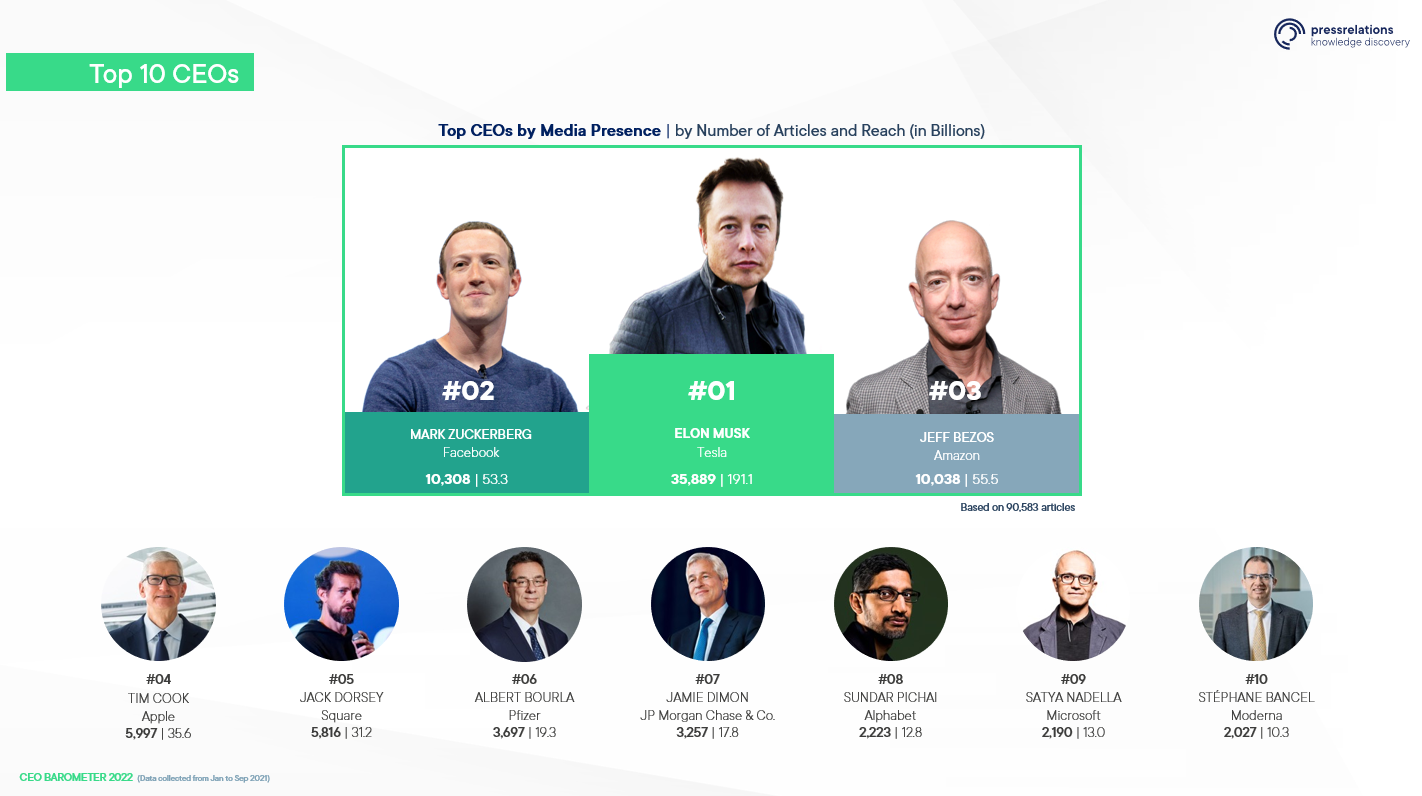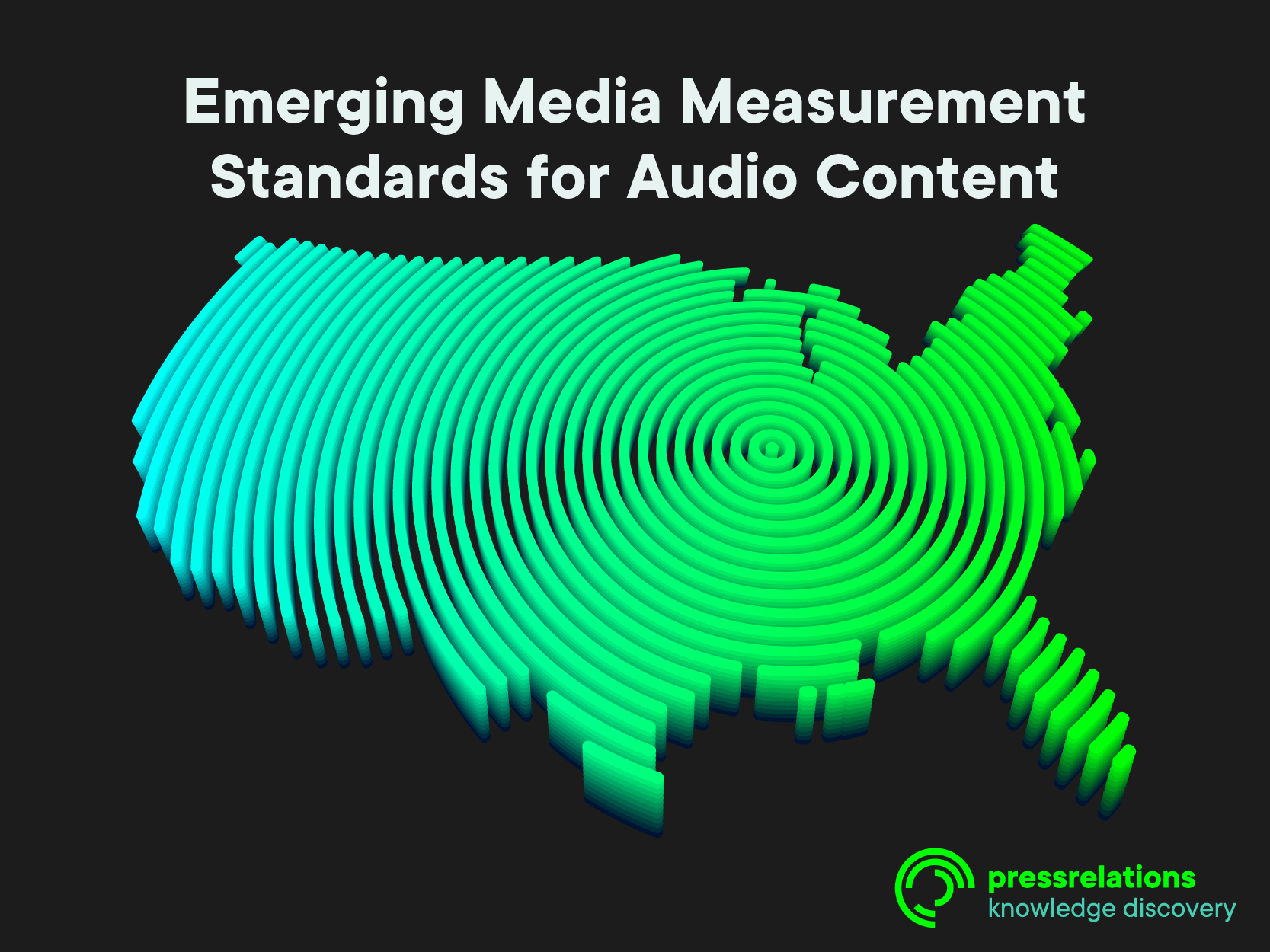Marketing communications firm Weber Shandwick conducted a survey of 1,700 global executives. The study highlighted that CEOs’ media profiles account for a whopping 58% of corporate reputation. Eighty-seven % of the respondents also confirmed that CEOs’ media presence has a direct and profound impact on their organizations’ marketability, valuation, and attractiveness for investors. That’s why today’s CEOs are pushed to embrace the role of active and effective communicators as this will directly impact the public perception, reputation, and commercial performance of their organizations.
But how do CEOs get it right? Read our post to find out.
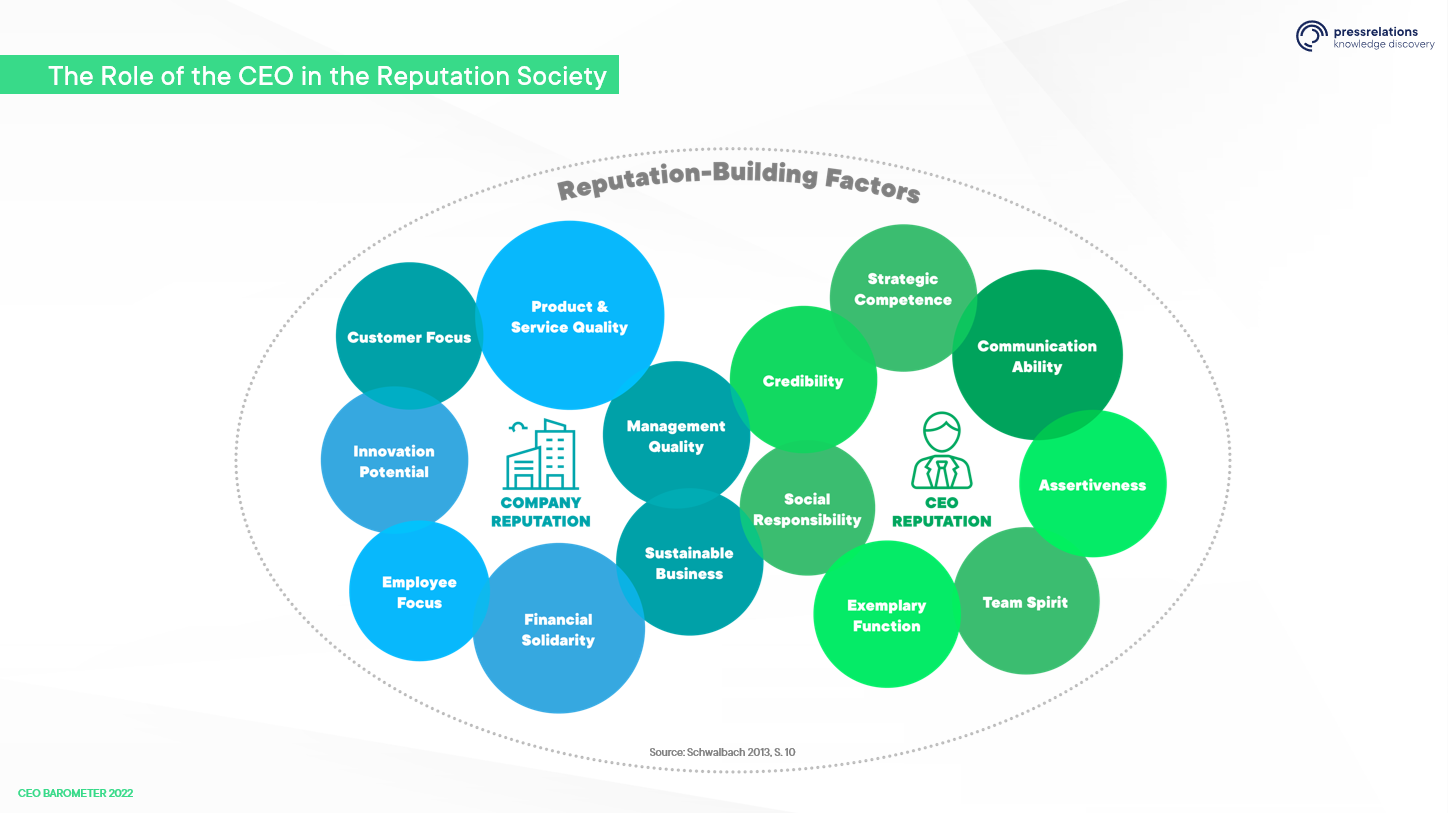
Top CEOs by Media Presence
The pressrelations 2022 CEO Barometer measured and evaluated the media presence of leading CEOs within technology, pharma, and finance in the United States. We analyzed more than 100,000 articles to identify which CEOs are acting as de-facto “Communicators-in-Chief” for their organizations and brands.
Here are the key results:
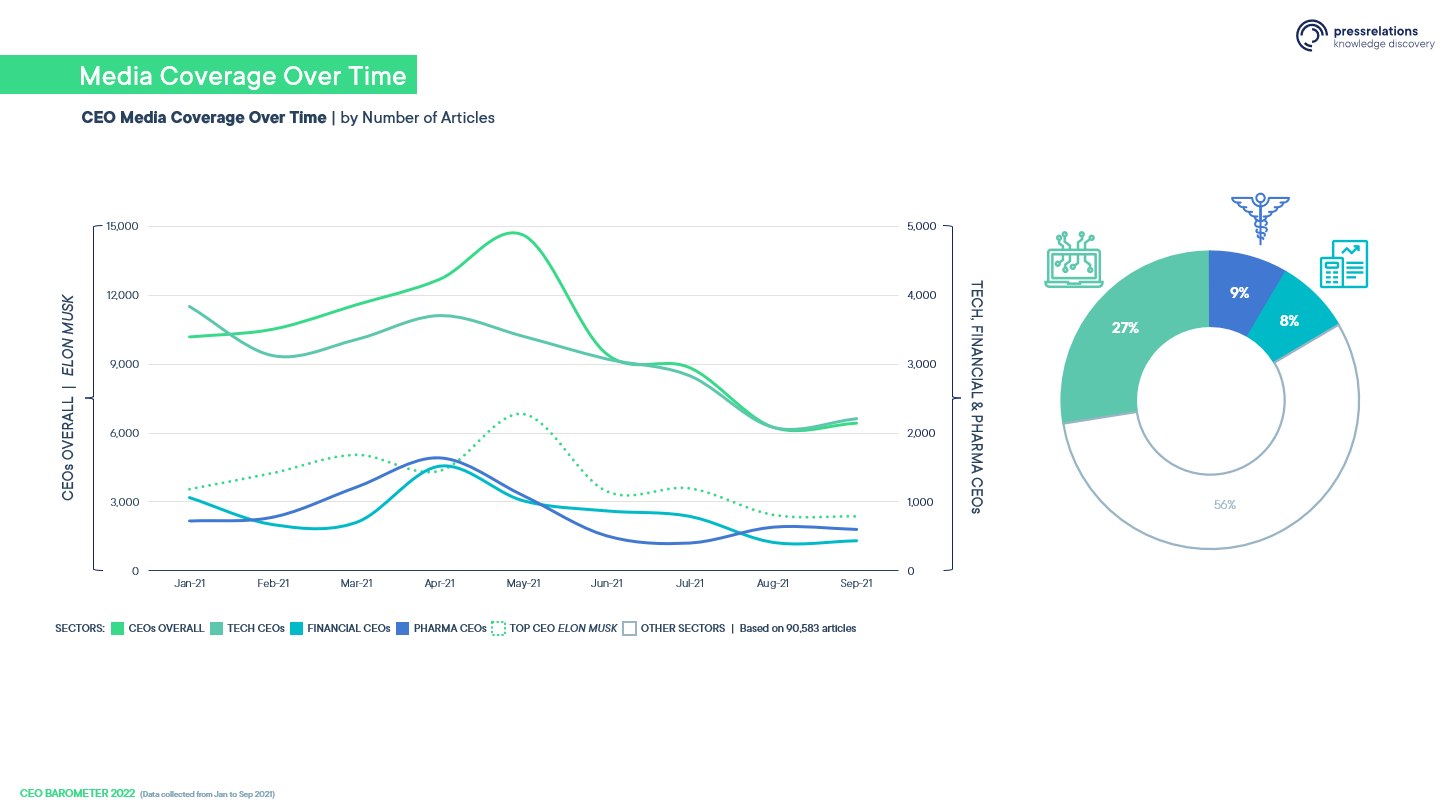
Next to his association with Tesla, SpaceX, The Boring Company, and others, Elon Musk’s controversial stance on many topics, such as cryptocurrencies, energy emissions, and space exploration made him the CEO with the most media coverage in the United States in 2021.
Here’s how Elon Musk ranks in comparison to other CEOs with significant media presence.
Top CEOs
Top CEOs in Technology

Top CEOs in Finance
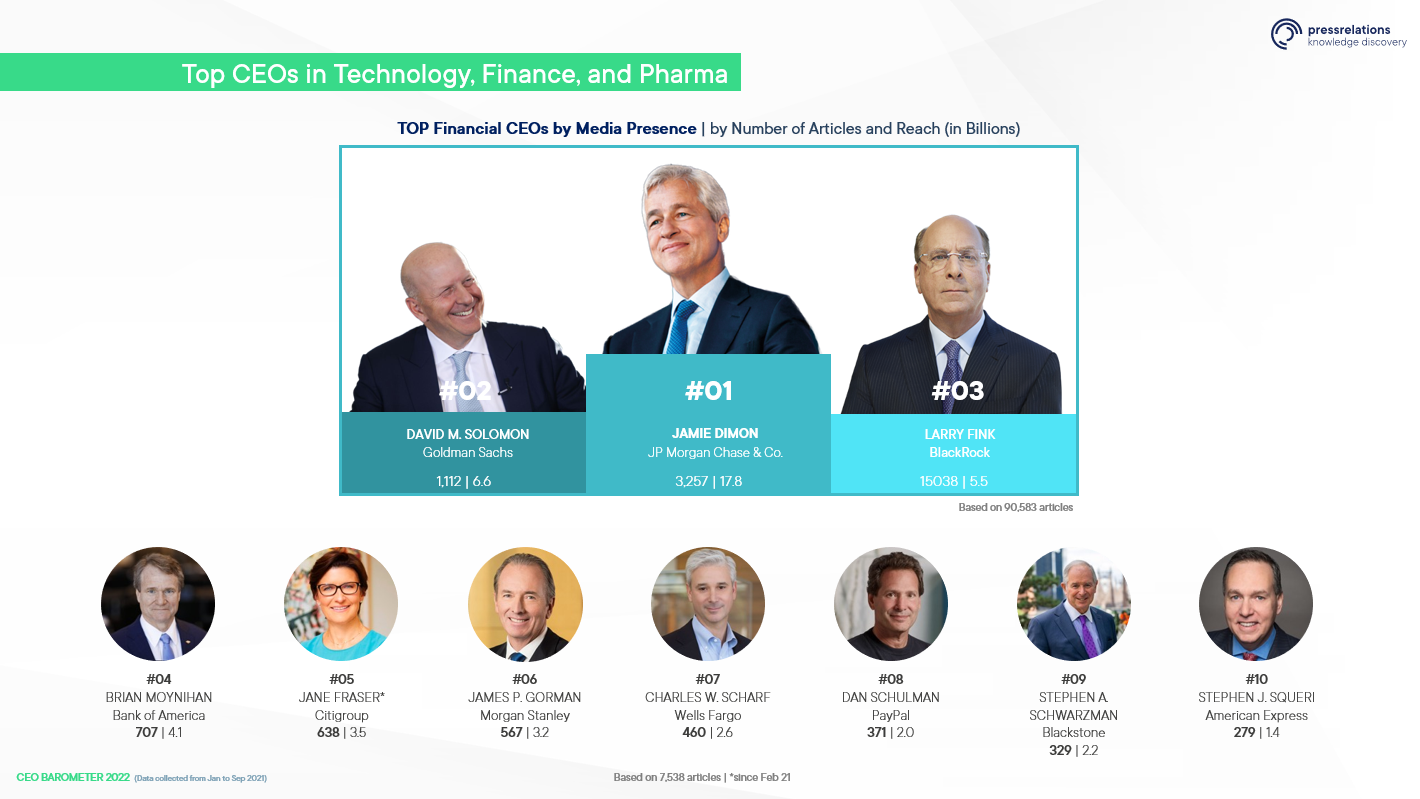
Top CEOs in Pharma
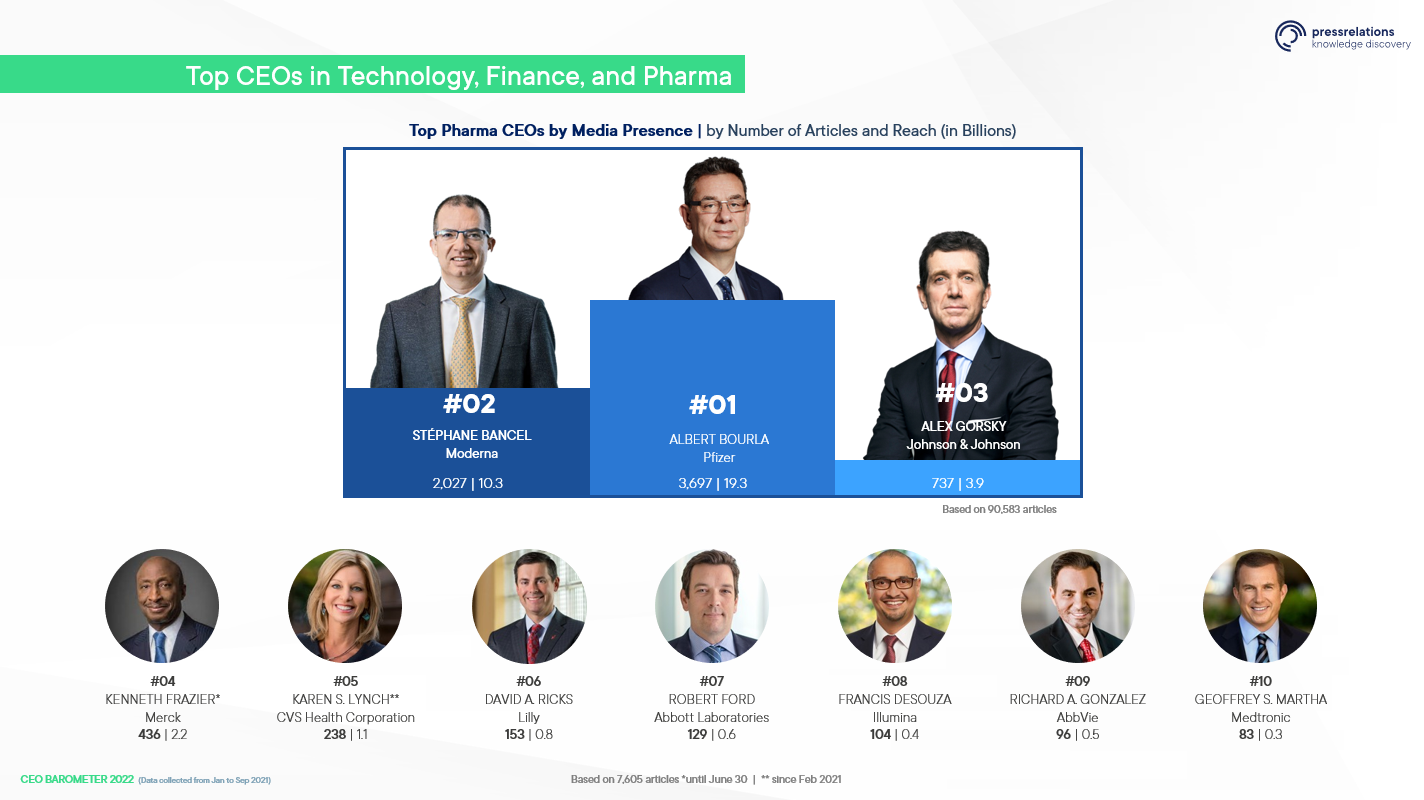
What Is “Voice Ownership“?
In short “Voice Ownership” is the CEO telling their story—clarifying their position and communicating it. Voice Ownership is measured by the ratio of a CEO’s active media voice, such as quotes or interview content, compared to their passive media voice, such as media mentions and stories about them.
Voice Ownership also represents how much the media actively quotes a CEO and how effectively they manage their own social media profiles.
For communicators, leveraging CEOs as “Communicators-in-Chief” through ensuring regular engagements with journalists and other multipliers and offering quotable content will be an effective tool to deliver corporate messaging.
CEOs with high active Voice Ownership scores present themselves as transparent and visionary leaders to the media, thus greatly influencing the perception of their organizations, products, services, and stakeholders.
Executives with a lower active Voice Ownership score do not necessarily impact corporate reputation negatively. However, they ignore the opportunity to shape their organizations’ reputation and market valuation.
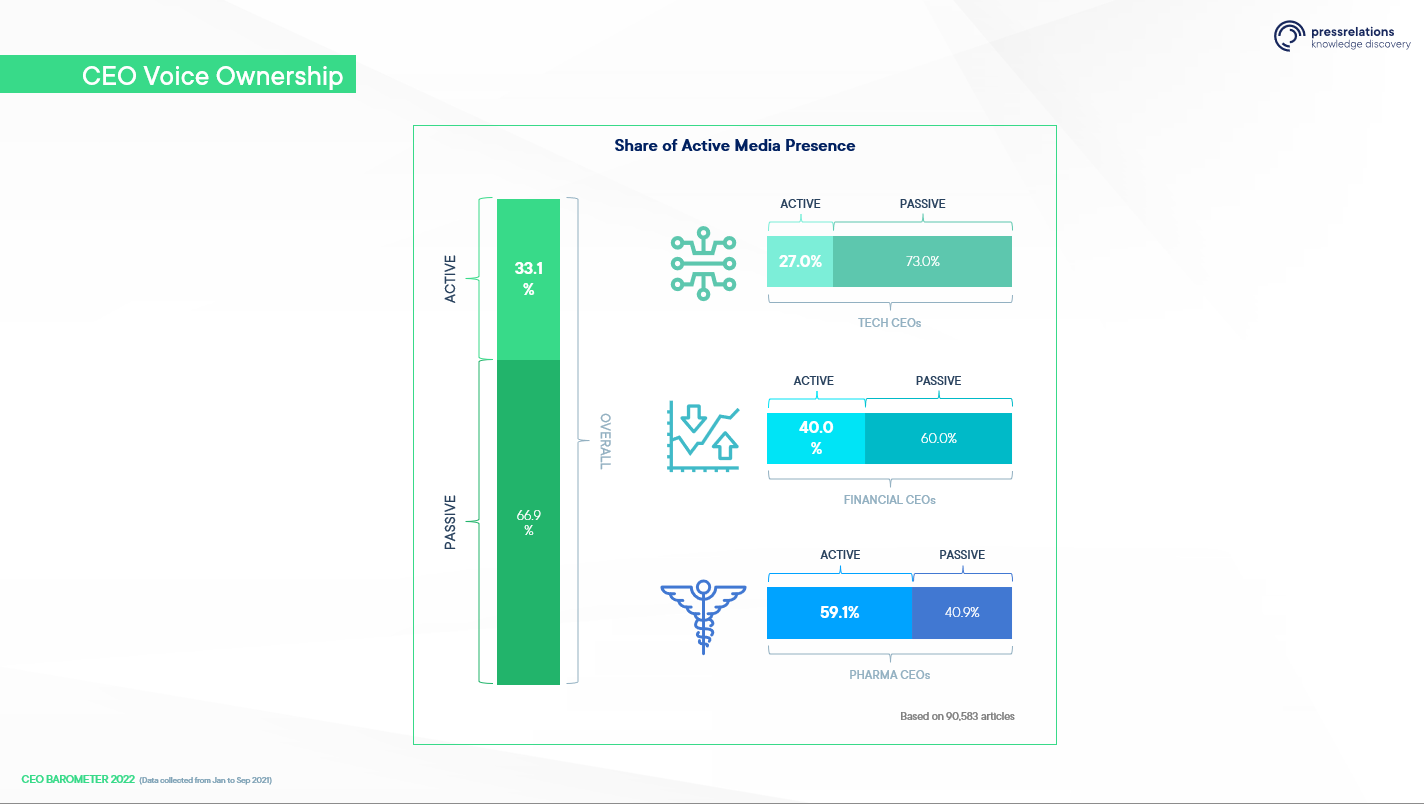
To achieve successful CEO-driven communications, CEOs must actively engage the media instead of letting their reputation be built solely on passive media coverage. They can produce quotable content through social media, interviews (podcasts, talk shows, radio, etc.), and more.
Key Takeaway
Higher volumes of media coverage do not equate to Voice Ownership. CEO-driven communications should not be just about market share and equity; executives must also engage on societal topics to build a personal reputation, and with it, a corporate reputation.

